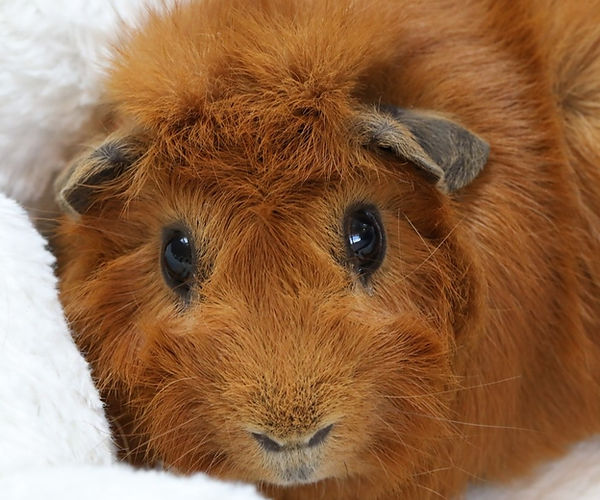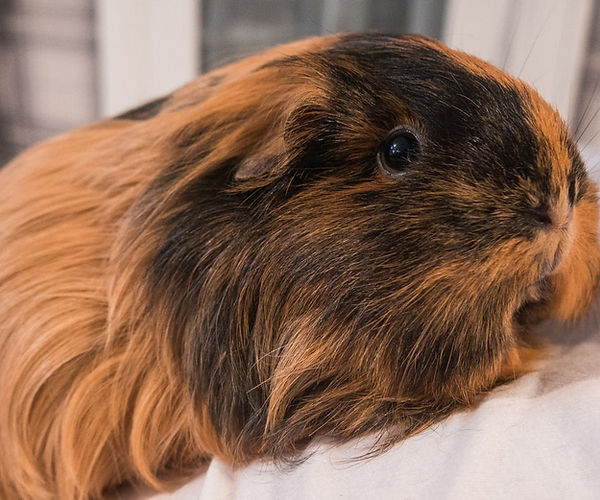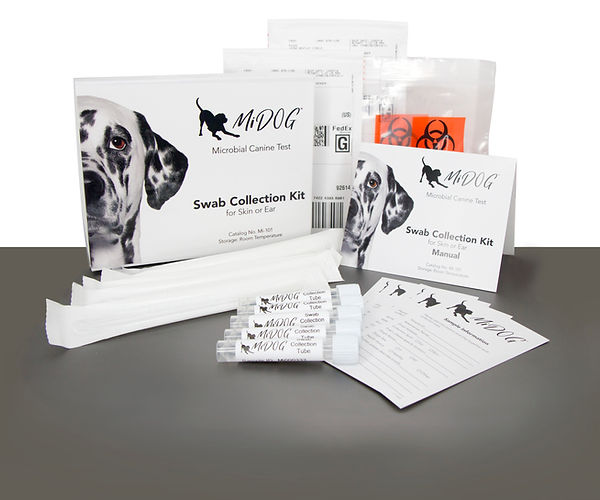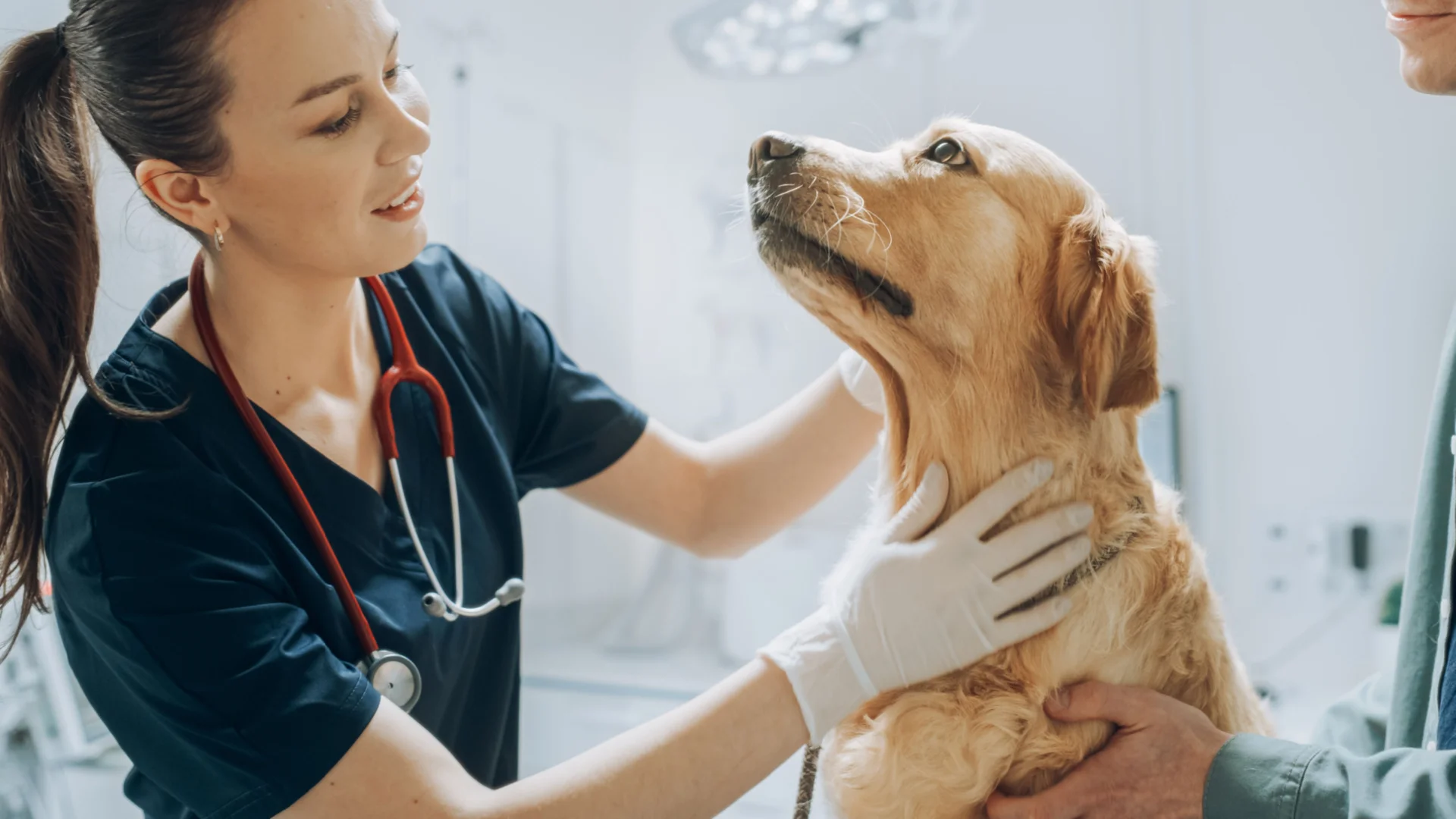
Respiratory infections in guinea pigs are particularly difficult to treat.
March is “Adopt a Guinea Pig” month, and it is important for current and future guinea pig parents to learn about common respiratory disorders in this small mammal! One study suggests that approximately 40% of guinea pigs seen by a veterinarian have been diagnosed with a bacterial infection, with upper respiratory infections being the most commonly reported [1]. However, because guinea pigs are extremely sensitive to the effects of many antibiotics, understanding possible sources of infections and how they manifest is critical for guinea pig owners. It is important to note that while this article is going to focus on bacterial infections, there are several other diseases (ranging from parasitic infections to viral infections) that are common and also necessitate immediate interventions. Visiting an exotic pet veterinarian if you suspect your guinea pig is sick is always recommended.
And so without further ado, here are three common bacterial infections to be on the lookout for your furry best friend.
1. Bacterial Pneumonia
As one of the most common significant diseases in guinea pigs, pneumonia causes inflammation of the lungs that can cause death. Damp and/or humid environments provide the ideal breeding ground for pathogens that invade your guinea pig’s respiratory tract, such as Bordetella bronchiseptica, Streptococcus pneumoniae, Streptococcus zooepidemicus, and more [1,2]. Occasionally, pneumonia can also be caused by adenovirus [2]. Bacterial pneumonia infections develop when the pathogen attaches to the guinea pig’s respiratory epithelium, where it inhibits ciliary movement and causes an inflammatory response, antiphagocytic activity, and dermonecrosis [3]. Understanding the causative pathogen for respiratory infections is key for early and successful treatment.
Symptoms include:
- Oozing/discharge from nose
- Sneezing
- Difficulty breathing
- Conjunctivitis
- Fever
- Weight loss
- Depression
- Loss of appetite
- Sudden death
2. Bordetella bronchiseptica Infection
While Bordetella bronchiseptica can be a causative pathogen for pneumonia, guinea pigs without signs of illness may be carriers, leaving them susceptible to future infections if their respiratory microbiome becomes imbalanced [4]. Bordetella is a Gram-negative rod bacterium that not only causes severe respiratory infections but is also associated with stillbirths, abortions, infertility and infections of the reproductive system and tympanic bullae [5]. Bordatella causes a purulent bronchopneumonia, and notably may bind variably to antigen presenting cells in the respiratory epithelium; this may lead to chronic infections through an altered immune response [5].

The image above depicts a 3D representation of Streptococcus pneumoniae.
3. Streptococcus pneumoniae infection
Similarly, Streptococcus is also transmitted by asymptomatic carriers of various species, which allows for infections to propagate unexpectedly. Streptococcus is a Gram-positive coccus that is transmitted by direct contact, aerosolization, and from fomites [5]. Streptococcal presentations of pneumonia may also be accompanied with dyspnea, Contemporary research has made significant strides in characterizing Streptococcus, as a spectrum of virulent strains has been identified using Next-Gen Sequencing (NGS) [6].
Preventing Infections in Guinea Pigs

To prevent respiratory infections in your guinea pig, proper animal husbandry is critical.
Proper animal husbandry is critical to ensure that your pet guinea pig has a strong immune system. Environmental factors like unclean cages, improper climate, lack of nutrition, and more can compromise your guinea pig’s immune system and leave your furry pet susceptible to opportunistic bacteria.
Read the Long Island Bird & Exotics Veterinary Clinic Guide here to learn everything you need to know about proper guinea pig care.
Guinea Pig Infection Treatment and Diagnostics
Veterinarians recommend that guinea pigs visit yearly to ensure the well-being of these difficult to diagnose small mammals. The aforementioned infections in this article all may require medical intervention, with treatment ranging from fluids and oxygen therapy to antibiotic courses [2]. Treatment for respiratory infections in guinea pigs is particularly complex, largely because guinea pigs are sensitive to the effects of many antibiotics [2]. Whether these effects are due to the medication itself or because of the disruption of gut flora due to antibiotics, guinea pigs that receive certain antibiotics may develop:
- diarrhea
- loss of appetite
- dehydration
- drop in body temperature
- death
Unfortunately, even guinea pigs that are asymptomatic are at risk for adverse outcomes. The good news is certain antibiotics are less harmful than others, and your veterinarian will also help you identify possible lifestyle changes you and your guinea pig can make to improve their quality of life and lessen the risk of recurrent infections. This entails understanding the exact pathogen that is impacting your guinea pig, with modern technological advances allowing for more targeted clinical diagnostic interventions.
For example, a recent study assessing the genetic diversity of oral streptococci in guinea pigs was able to use metagenomics technology to characterize the bacteria [7]. Metagenomics sequencing allowed the researchers to uncover guinea pig mouths are inhabited by a vast number of phylogenetically diverse streptococci populations, which could have significant implications for treatment approaches [7]. This indicates the clinical applicability of using genomic sequencing to identify, analyze, and eventually treat guinea pigs more effectively.
MiDOG Technology in Action
Our technology is currently being used by veterinarians to treat guinea pigs! Meet Weiler, who was suffering from chronic pneumonia and was non-repsonsive to treatment after discontinuing medications for one week. Our diagnostic technology detected a 47.5% bacterial relative abundance of Streptococcus pneumoniae, and a 99.9% fungal relative abundance of Kazachstania pintolopesii. Below is Weiler’s bacterial analysis, which is one of the many pieces of information we send back to the veterinarian so they can make informed clinical decisions!

The image above depicts Weiler the Guinea Pig’s bacterial analysis using MiDOG technology.
The MiDOG All-in-One Microbial Test may provide the answer to the diagnostic conundrum that guinea pigs infections pose. Utilizing NGS technology to detect and quantify all microbial DNA through untargeted and comprehensive sequencing and quantitative comparisons to reference databases, the MiDOG NGS technology provides a useful opportunity to shed light on the microbial makeup of your guinea pig’s infection for clinical application. The MiDOG microbiome test is a microbial identification test grounded on scientific research that provides veterinarians DNA evidence for the guided treatment of respiratory infections in guinea pigs.

Find out if your vet uses MiDOG before you book your next appointment!
For health-related questions about your pet, reach out to an exotic pet veterinarian.
Citations:
[1] Roberts-Steel, S., Oxley, J. A., Carroll, A., & Wills, A. P. (2019). Frequency of Owner-Reported Bacterial Infections in Pet Guinea Pigs. Animals : an open access journal from MDPI, 9(9), 649. https://doi.org/10.3390/ani9090649
[2] Quesenberry, K. and Donnelly, T., 2019. Disorders and Diseases of Guinea Pigs – All Other Pets – MSD Veterinary Manual. [online] MSD Veterinary Manual. Available at: <https://www.merckvetmanual.com/all-other-pets/guinea-pigs/disorders-and-diseases-of-guinea-pigs#:~:text=Signs%20of%20pneumonia%20include%20oozing,among%20groups%20of%20guinea%20pigs.>.
[3] Harkness, J. E., Murray, K. A., & Wagner, J. E. (2002). Biology and Diseases of Guinea Pigs. Laboratory Animal Medicine, 203–246. https://doi.org/10.1016/B978-012263951-7/50009-0
[4] Woode, G. and Mcleod, N., 1967. Control of Acute Bordetella Bronchiseptica Pneumonia in A Guinea-Pig Colony. Laboratory Animals, 1(2), pp.91-94.
[5] O’Rourke D. P. (2004). Disease Problems of Guinea Pigs. Ferrets, Rabbits, and Rodents, 245–254. https://doi.org/10.1016/B0-72-169377-6/50026-5
[6] Hu, Y., Fu, S., Zou, G. et al. Genome analysis provides insight into hyper-virulence of Streptococcus suis LSM178, a human strain with a novel sequence type 1005. Sci Rep 11, 23919 (2021). https://doi.org/10.1038/s41598-021-03370-0
[7] Król, J., Nowakiewicz, A., Błaszków, A. et al. Genetic diversity of oral streptococci in the guinea pig as assessed by sequence analysis of the 16S rRNA and groEL genes. Folia Microbiol (2021). https://doi.org/10.1007/s12223-021-00936-3
Categories: Exotic Pets, Guinea Pigs, Respiratory Infection

